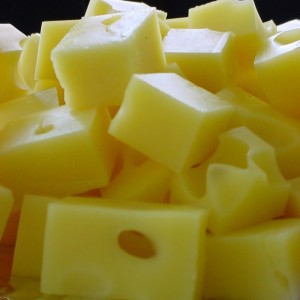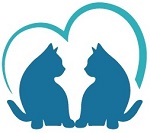
 Mice are the quintessential cheese lovers. What do you fill the mouse trap with if not a nice tasty chunk of cheddar?
Mice are the quintessential cheese lovers. What do you fill the mouse trap with if not a nice tasty chunk of cheddar?
The clever cartoon cat might even use a chunk of Swiss to draw a mouse out of hiding. Most cats love cheese too. So if you set out that mouse trap you may be surprised to find a cat in the trap instead.
Even humans have such a love of all things cheesy that we probably invented cheese before we started writing. Alphabets have progressed a little since their origin, but cheese is light years ahead. We’ve even gone so far as to invent one that we can squirt out of aerosol cans.
Cheese is not poisonous to cats. It can, however, cause them some severe indigestion.
Can I Give My Cat Cheese? Answer: Depends on the Cat and the Cheese
Although cats love the taste of milk and cheese, most of them are lactose intolerant. So while it won’t do them much harm, it will put them in a certain amount of discomfort. Human fondness for cheese has resulted in such a plethora of different types that it is important to take into account that certain spices and condiments are severely hazardous to cats. On top of that, most cheeses contain large quantities of salt. Salt can be extremely dangerous to cats as it disturbs their electrolyte balance.
Check if Your Cat is Lactose Intolerant
A cat that is not lactose intolerant is extremely rare, but they do exist. Your cat may be one of the special ones that can consume dairy products without any difficulty. It is easy to check if this is the case. Feed your furry cheese lover a bit of milk or cheese to see how they react. Most cats will display the symptoms of an irritated stomach and perhaps some diarrhea. If your cat does not seem to be in discomfort and their litter box is not messier than usual, they have the necessary enzyme to process dairy products. In this case the occasional cheesy treat should be no problem.
Pure Cheese
There is more to most cheeses than just milk. A large majority of cheeses add large amounts of salt that works both as a preservative and as a taste enhancer. Be wary of varieties that have a lot of salt such as aged cheddar and feta cheese. Salt isn’t a staple of the feline diet and can cause problems with their electrolyte balance. A common practice, especially in creamy cheeses, is to add herbs. Garlic and chives are very popular additions to cheese, but are extremely dangerous to cats.
Cats that consume these condiments suffer from a type of anemia as garlic, onions, chives, and related roots attack and destroy their red blood cells. If your cat happens to be one of the lucky ones that can tolerate cheese, make sure the cheese you feed them is pure, as additional ingredients could turn out to be even more harmful.
Occasional Snack Only
A diet composed of cheese alone is not good for anyone. Imagine if you ate your favorite cheese everyday, chances are you would end up malnourished and overweight. For cats it is even worse. Cheese can never be considered a primary source of nutrients for them. They require taurine and fatty acids that are not available in cheese.
A cat that lacks taurine will experience hair loss, tooth decay and cardiovascular problems. Keep the cheese to a minimum, even if your cat’s digestive system can tolerate it. It still is a fatty food that serves no nutritional purpose for them.
Cat Food is Better
Cats will gladly eat cheese, but except for a select few, most of them will eventually regret it when standing in the litter box. Keep it away from your cat if you know that they are lactose intolerant. If they can handle the cheese, it is still important to keep in mind that most cheeses are spiced and salted. Additions to cheese such as garlic and onions are toxic to cats, so make sure it is pure before you share it.
Almost all cheese contains quite a lot of sodium which unhinges a cat’s delicate electrolyte balance. Avoiding cheese altogether is a safer, healthier option. There are plenty of cat treats available that are tasty and meet feline nutritional needs.
